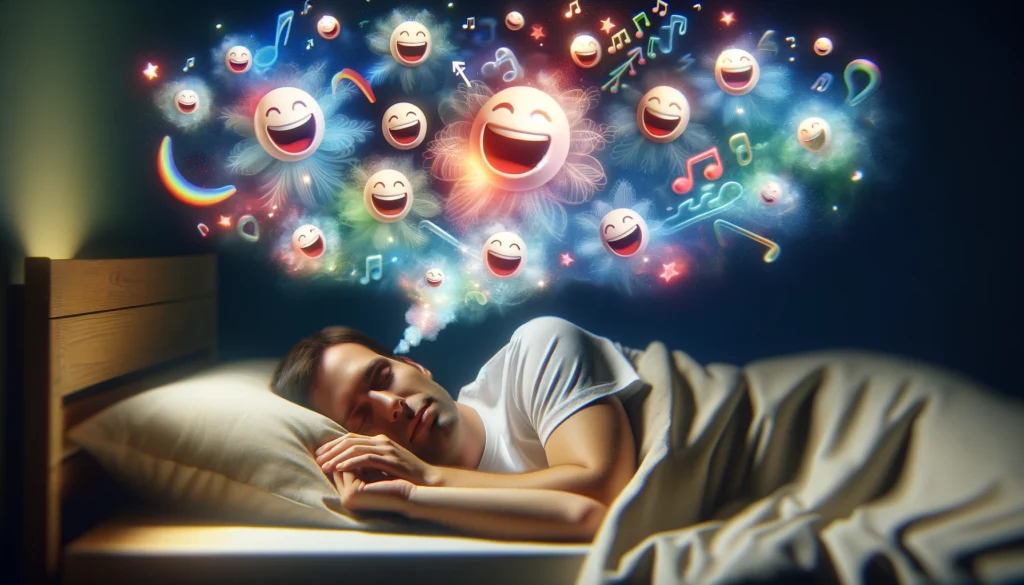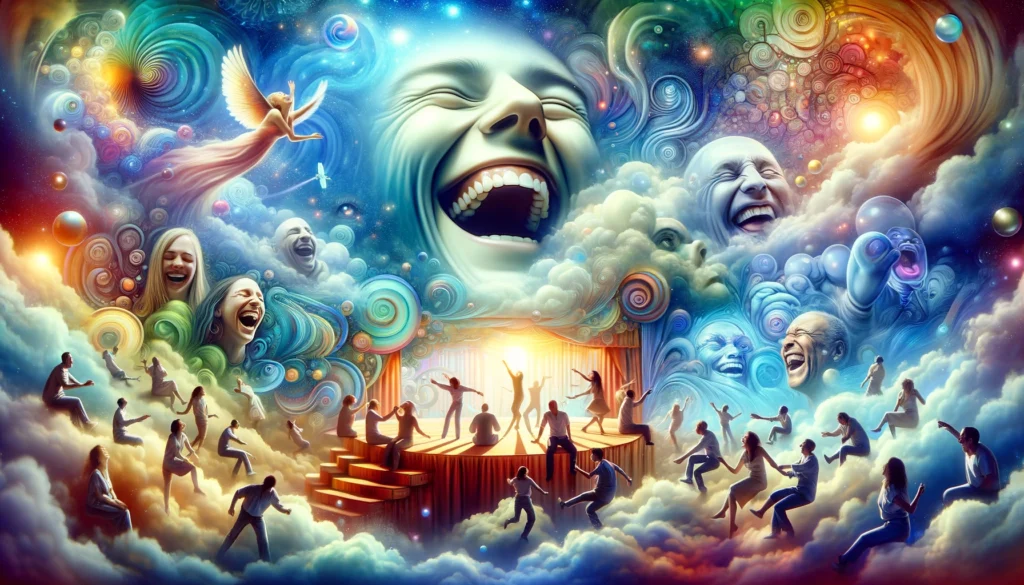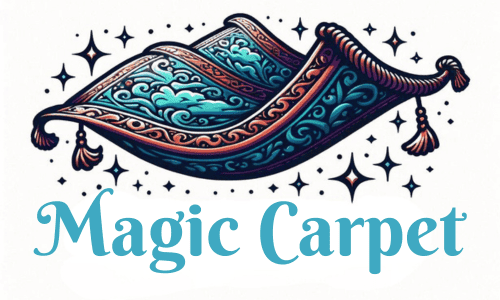Laughing in your dreams can often be a puzzling experience. You might wake feeling refreshed, joyful, or confused about what your subconscious tries to convey.
Laughter in dreams may represent a variety of emotions or experiences, from the release of pent-up tension to a foreboding of unexpected circumstances.
While it’s typically associated with joy and positivity in your waking life, its presence in dreams calls for a deeper examination of its underlying message.

Different contexts can alter the significance of a dream where you laugh. The nature of the laughter—whether directed at someone, with someone, or in a social context—can influence its interpretation.
Moreover, your own emotional response to the dream, such as feeling anxious or content, can offer clues about what it means.
Since dreams reflect your inner thoughts and concerns, understanding the nuances of dreaming about laughter can illuminate your emotional well-being or highlight areas in your life that may require attention.
Key Takeaways
- Laughing in dreams can indicate a release of tension or hint at a deeper emotional context.
- The meaning of a laughing dream may change based on who is laughing and the situation.
- Your feelings during the dream are crucial for interpreting laughter’s significance.
Understanding Dreams of Laughter

Laughing dreams can offer insights into one’s emotional well-being and subconscious mind. Let’s discover what it might mean when one laughs in a dream.
The Basics of Dream Interpretation
When you try to interpret dreams, you engage with a highly personal and subjective experience. Dream interpretation is not an exact science, but it’s thought that dreams can reflect your inner desires, fears, and emotions.
If you dream of laughing, it’s important to consider the context of the laughter. Who is with you, and how does the laughter make you feel? Each detail can contribute to a better understanding of the message your subconscious might be sending you.
Common Themes in a Dream of Laughing
Laughing in a dream generally symbolizes joy, a release of tension, or a reflection of one’s happy experiences in waking life.
- Joy and Contentment: Dreaming of laughing often indicates a sense of happiness or the need for more positivity in your life.
- Emotional Release: If you’re laughing in a dream, it might suggest you are or need to release stress and negative emotions.
- Social Connections: Laughing with others in dreams can point toward your relationships and the importance of social bonds.
A dream where you’re laughing may also symbolize a personal achievement or a breakthrough you’ve recently had or are aspiring to.
Remember, a dream involving laughter may also vary in interpretation depending on the specifics; for example, laughing at inappropriate times might suggest hidden anxieties, while hearing others laugh could reflect your social interactions. Interpret these dreams’ signals to understand your emotions and subconscious thoughts better.
Analyzing Different Types of Laughter in Dreams

When you dream of laughter, it’s important to note whether you’re hearing it, seeing yourself laugh, or observing someone else laugh. These experiences can reveal different emotional landscapes in your subconscious.
Hearing Laughter
If you’re hearing laughter in your dream, consider the emotion behind it. Is it a joyous sound or does it come across as mocking?
For example, hearing a child laughing might symbolize pure joy and simplicity, while overhearing vague, disembodied laughter could suggest anxiety about being the subject of ridicule.
Seeing Yourself Laughing
Dreams where you see yourself laughing often reflect a release of tension and a signal for your need to embrace a lighter side of life.
This laughter can indicate that you’re in the process of letting go of pent-up emotions. If you recall laughing at something specific, this could symbolize your feelings about that situation in your waking life.
Dream of Seeing Someone Laughing
Dreams of someone else laughing, such as a friend or woman laughing in your dream, might point to your social bonds and the joy they bring into your life.
Alternatively, if the laughter feels malicious, it might represent your insecurities or fears of being judged. The context of who is laughing and how you feel about it is key to interpreting these dreams.
Emotional Response and Symbolism

When you dream of laughing, your emotional response often reflects your feelings or anticipates events in your waking life. These dreams can symbolize a range of emotions, from elation to distress.
Joy and Happiness
Experiencing laughter in a dream is frequently a positive sign, possibly indicating good news or a sense of accomplishment.
The joy and happiness you get from laughing dreams typically represent pleasure and emotional well-being. This type of dream might tell you you are on the right path, aligning with your desire for contentment and social connection.
Laughing and Crying
Conversely, laughter in a dream could symbolize masking feelings of sadness or trouble, especially if you laugh and cry simultaneously.
Such a dream could indicate a subconscious attempt to cope with difficulty. It might be a sign of denial or a defense mechanism – your mind is protecting you from anger and danger.
If laughter feels forced or happens during inappropriate moments in the dream, it may be a hint to examine areas of your life where you’re facing challenges.
Contextual Considerations in Laughing Dreams
When you dream of laughter, the context matters significantly as it could represent a range of emotional and social dynamics, from joy and connection to underlying stress or illness.
Relationships and Social Dynamics
In the realm of dreams, your laughter could symbolize the state of your relationships and the social dynamics around you.
If you find yourself laughing with loved ones in a dream, it often points to the strength of your bonds and a shared sense of happiness.
On the other hand, hearing someone you know laughing without your participation might indicate feeling outside of a group or lacking inclusion in social celebrations.
Psychological Significance of a Child Laughing
Laughter in dreams isn’t just a signal of social interactions; it also reflects your psychological state of mind.
A dream in which you see a child laughing might connect to your own playful and carefree nature. Meanwhile, experiencing laughter at inappropriate times, such as attending a funeral, might imply your discomfort with expressing emotions appropriate to the situation.
Furthermore, dreams in which you fail to laugh, despite the presence of humor, could highlight your stress levels or psychological challenges. These dreams reveal an inner need to address some problems, casting a shadow on your typical jovial disposition.
Keeping a Dream Journal
Maintaining a dream journal is essential for capturing the fleeting details of your dreams. When you wake up, write down everything you can recall about your dream.
Be specific about people, emotions, colors, and sequences of events. Journaling will be valuable when you analyze your dreams later.
- Quickly jot down key points if you’re short on time.
- Use descriptive language to detail the dream’s setting and characters.
The Clever Fox Dream Journal helps you tap into your subconscious by recording and analyzing dreams, fostering creativity, self-awareness, problem-solving, and stress reduction.
This unique diary offers 60 dream entries, an eco-leather hardcover, quality paper, and extras like stickers. It is designed for all ages and comes with a 60-day money-back guarantee.

